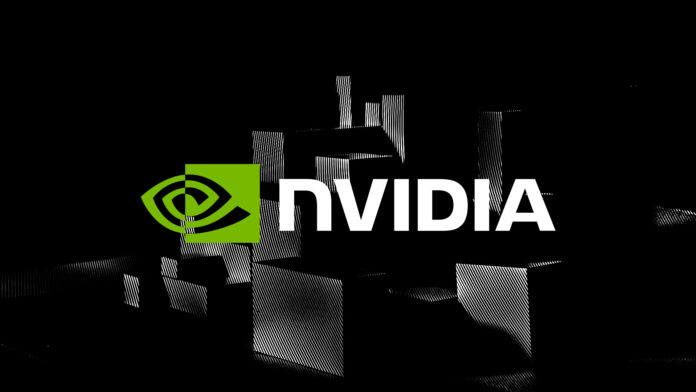Nvidia, the computing software and hardware design firm behind what some have touted to be the cutting edge in terms of processors, has long been a key player in the world of technology. Its silicon substrate designs laid the foundation for technological innovation for over the past three decades, driving progress in various industries.
Nvidia CTO Michael Kagan, however, recently expressed his belief that cryptocurrencies do not “bring anything useful for society,” in an interview from The Guardian.
“All this crypto stuff, it needed parallel processing, and [Nvidia] is the best so people just programmed it to use for this purpose, They bought a lot of stuff, and then eventually it collapsed, because it doesn’t bring anything useful for society. AI does.” Kagan shares.
Kagan also compared crypto to AI, claiming that the uses of processing power for artificial intelligence engines were somehow more “worthwhile” than mining or computing for proof-of-work blockchains. Despite this assertion, it’s essential to examine Nvidia’s history and its role in supporting the development of blockchain and distributed ledger technologies, which are shaping a decentralized future.
Nvidia’s Silicon Legacy
As a silicon manufacturer, Nvidia has been at the forefront of the tech revolution. Silicon, the second most abundant element on Earth (seventh, if we include the entire known universe), is the primary component in semiconductor materials. Its unique properties have enabled the production of integrated circuits, microprocessors, and memory chips, all of which have played a pivotal role in the digital age. The growth of silicon-based technology has spurred advancements in computing, communications, and various other industries, impacting every aspect of our lives. This also extends to how blockchain technologies were first developed from the mid-80s until the threshold moment in January 2009, which was when the genesis block for Bitcoin was mined.
As technology evolves, the salient prospects of creating cohesively interlinked ecosystems and stacks is increasingly shifting toward decentralization. Blockchain and distributed ledger technologies (DLT) are key to this development, enabling greater security, transparency, and efficiency in various sectors. The rise of Bitcoin and other cryptocurrencies is just one example of how these technologies are reshaping our world.
Considering the legacy of companies like Nvidia, it is vital that they continue to support and nurture the growth of decentralized technologies. While the initial software behind Bitcoin relied heavily on proof-of-work, future implementations of blockchain and DLT may require less computing power as the shift to becomes more apparent in the case of Ethereum. As a leading computer hardware manufacturer, Nvidia has the potential to contribute significantly to this decentralized future.
Indeed, Nvidia’s mixed relationship with cryptocurrencies highlights the need for tech giants to adapt and embrace the changes driven by blockchain and DLT. Roughly two years ago, its competitors such as AMD have also begun their own . While their GPUs were in high demand for mining cryptocurrencies, the firm has also faced challenges, such as the enforced hashrate limitations and regulatory prompts and warnings for not disclosing the impact of crypto mining on their gaming GPUs.
Crypto’s Social Impact
Technology pushes the boundaries of what’s possible in the human imagination. It’s a bit disheartening to hear of technologists such as Kagan offer a negative prospect about crypto and blockchain, which may be considered as one of the greatest innovations in recent history. While it’s true that there have been challenges and inconsistencies in the crypto industry which have led to global market instability, the core technology and the ideals of freedom and financial inclusion it represents is what’s important, not the or the prices driving people unto irrational heights.
Cryptocurrencies and blockchain technology have garnered significant attention in recent years, not only for their potential to disrupt traditional financial systems but also for their wide-ranging social implications.
The crypto industry is rapidly reshaping the legacy ecosystems that we’ve all been mired in: from banking to finance, crypto is changing the paradigm, opening its use to unbanked and underbanked demographics. With a borderless and decentralized financial ecosystem, crypto enables people without access to (or even those who prefer not to) traditional banking services to become active participants in the global economy. This fosters individual freedom and opens opportunities, especially in developing nations.
In the same way, crypto and blockchain tech have also revolutionized philanthropy and social initiatives. With the use of transparent smart contracts, crypto helps ensure funds are used effectively and reach their intended recipients. Tokenization and smart contracts can also be used to facilitate innovative funding models, such as decentralized autonomous organizations (DAOs) focused on social causes.
While cryptocurrencies like Bitcoin have faced for their energy consumption and impact, many projects in the crypto space are actively working on more sustainable solutions. It can also be leveraged to promote environmental stewardship, such as by tracking carbon emissions, enabling peer-to-peer renewable energy trading, and ensuring sustainable land management practices.
It’s crucial for companies like Nvidia to recognize the potential of blockchain and DLT in shaping our shared, decentralized future. By supporting and fostering these advancements, tech giants can help usher in a new era of innovation, driving progress across industries and improving the lives of people worldwide.
Credit: Source link






















 Bitcoin
Bitcoin  Ethereum
Ethereum  XRP
XRP  Tether
Tether  Solana
Solana  USDC
USDC  Dogecoin
Dogecoin  Cardano
Cardano  Lido Staked Ether
Lido Staked Ether  TRON
TRON  Wrapped Bitcoin
Wrapped Bitcoin  Chainlink
Chainlink  Wrapped stETH
Wrapped stETH  Avalanche
Avalanche  Sui
Sui  Stellar
Stellar  Litecoin
Litecoin  Toncoin
Toncoin  Shiba Inu
Shiba Inu  Hedera
Hedera  LEO Token
LEO Token  USDS
USDS  Hyperliquid
Hyperliquid  Polkadot
Polkadot  WETH
WETH  MANTRA
MANTRA  Bitcoin Cash
Bitcoin Cash  Bitget Token
Bitget Token  Ethena USDe
Ethena USDe  Wrapped eETH
Wrapped eETH  Uniswap
Uniswap  Monero
Monero  NEAR Protocol
NEAR Protocol  Pepe
Pepe  WhiteBIT Coin
WhiteBIT Coin  Bittensor
Bittensor  Ondo
Ondo  Aave
Aave  Aptos
Aptos  Internet Computer
Internet Computer  Dai
Dai  Official Trump
Official Trump  Mantle
Mantle  Ethereum Classic
Ethereum Classic  Tokenize Xchange
Tokenize Xchange  OKB
OKB  Gate
Gate  sUSDS
sUSDS  Sonic (prev. FTM)
Sonic (prev. FTM) 
